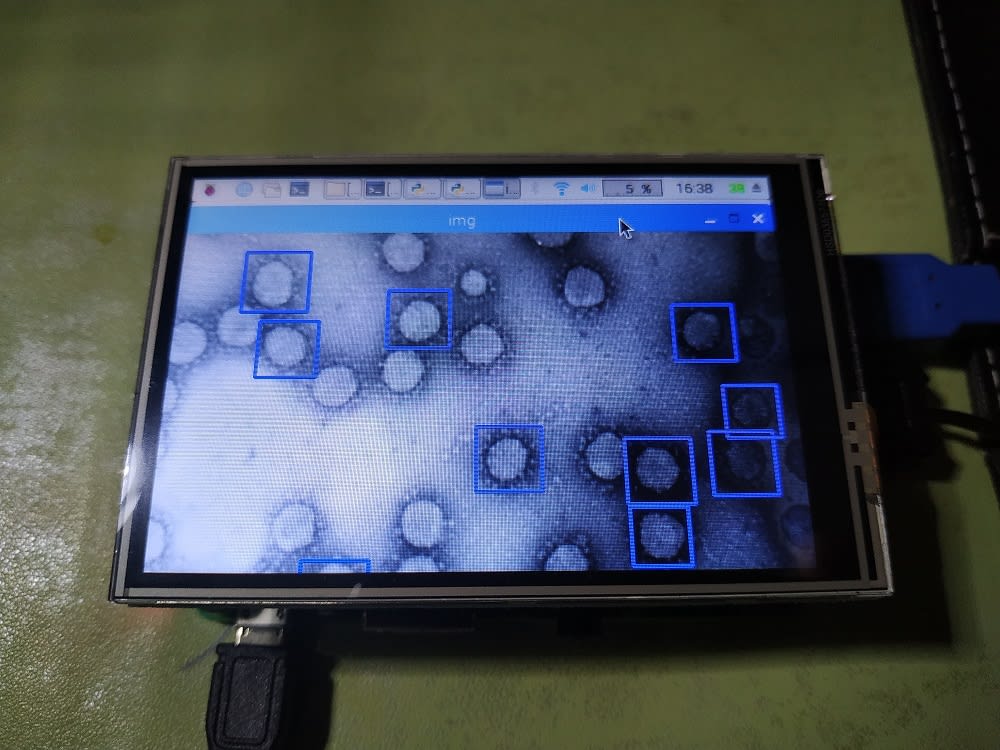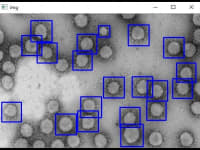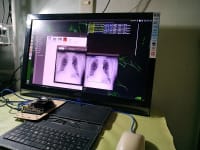As COVID-19 has shown, challenge and crisis cross borders – impacting everywhere on Earth. However, innovation and ingenuity are also not constrained by geography. Detection of COVID-19 is an opportunity to find and apply the best and brightest of humanity. We're going to improve our design replicable, low-cost tool and resource to aid viral detection of the COVID-19. Computer vision as Deep Learning with OpenCV is used here, and can serve as a backup to the work done in the laboratory.
What're the goals of this project? 1) Detecting COVID-19 in X-ray with OpenCV; and 2) Detecting COVID-19 Virus Cells with OpenCV.
What hardware we have used? 64-bit Windows 10 PC, Raspberry Pi 3B+, and Jetson Nano.
First, we have make our own classifiers: 1) covid-x-ray.XML (for recognition of lungs damaged by COVID-19 virus cells); and 2) covid-virus.XML (for recognition of the COVID-19 virus cells). We can use a sufficient image database to obtain robust classifiers with a very good prediction index.
Finally we have tested our two classifiers in our Hardware: 1) On our PC we have to install the Anaconda Software to be able to use OpenCV and Python; 2) On the Raspberry Pi 3B + board we have to install OpenCV and the screen libraries ILI9486; and 3) On the Jetson Nano board we have installed OpenCV 4.1.
Conclusion: 1) Detecting COVID-19 in X-ray with OpenCV, I get a high prediction rate, and in the same way with detecting COVID-19 Virus Cells with OpenCV. Only the data processing time will varied; and 2) By using the screen for Raspberry Pi, I can see that our project is operationally more practical since we can transport it to any destination, simply we replace the power supply with a 5V - 2A battery.
I hope in the future to make improvements to this prototype for the COVID-19 virus and detect future outbreaks. I attach images and a video of my prototype for a better understanding.
Video
Like this entry?
-
About the Entrant
- Name:Guillermo Perez
- Type of entry:individual
- Software used for this entry:OpenCV, Python, and Anaconda
- Patent status:none








